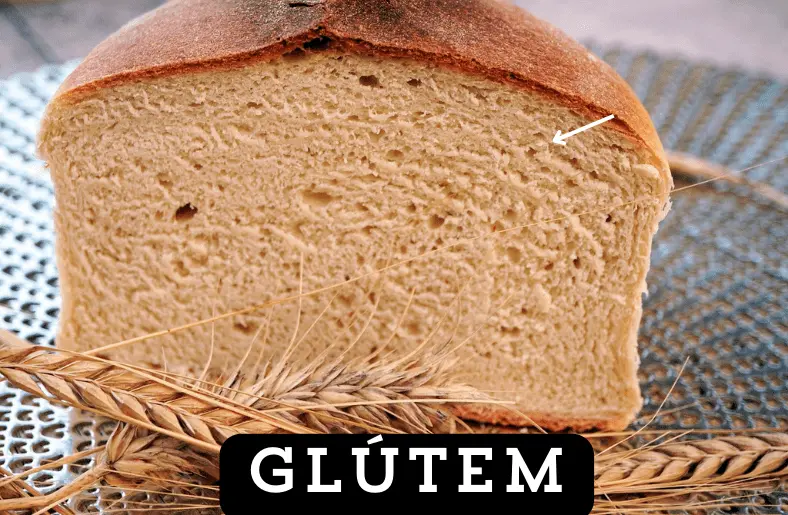In recent times, “glútem” has sparked considerable debate. To begin with, gluten is a protein complex found in wheat, barley, and rye. Consequently, it gives dough its elasticity and chewy texture. Nevertheless, for some people, gluten can cause significant health issues. Therefore, understanding gluten is essential. We will explore its role in baking, its impact on health, and address common misconceptions. Additionally, this article will clarify the myths versus facts about gluten. Furthermore, we’ll provide insights into navigating a gluten-free lifestyle. As a result, you’ll gain a well-rounded understanding of gluten. Ultimately, this information will help you make informed dietary choices. Stay tuned to discover the truth behind the gluten debate.
What is Glútem?
Glútem, commonly known as gluten, is a blend of proteins found in wheat, barley, and rye. Initially, it gives dough its structure and elasticity. Consequently, gluten helps bread rise and maintain its shape. It forms a network that traps air during baking. Hence, gluten is essential for creating chewy and textured baked goods.
Additionally, gluten serves as a binding agent in various processed foods. For example, it is used in soups, sauces, and some meats. However, not everyone tolerates gluten well. As a result, some individuals experience health issues when consuming gluten. In summary, gluten plays a crucial role in baking but may affect those with specific sensitivities.
Common Myths
Many myths surround glútem, often leading to confusion. For instance, some believe it causes weight gain. However, It does not directly lead to obesity. Instead, high-calorie foods with glútem may contribute to weight issues. Furthermore, some claim that glútem-free diets are inherently healthier.
On the contrary, eliminating glútem without a medical reason does not guarantee better health. Additionally, another myth suggests that modern wheat is excessively harmful. In reality, wheat has been bred for improved quality, not increased glútem content. Consequently, myths often mislead rather than inform. To clarify, understanding glútem involves separating fact from fiction and recognizing its role in various diets.
Understanding Glútem-Related Disorders
Its related disorders are significant yet often misunderstood. Firstly, celiac disease is an autoimmune condition triggered by glútem. Consequently, ingesting glútem damages the small intestine, leading to various symptoms. Similarly, non-celiac glútem sensitivity causes discomfort without intestinal damage. Unlike celiac disease, this condition is less understood.
Furthermore, a wheat allergy involves an allergic reaction to proteins in wheat, including glútem. Symptoms can range from mild to severe, such as hives or anaphylaxis. Additionally, proper diagnosis is crucial for managing these disorders effectively. Therefore, understanding each condition’s unique characteristics is essential for appropriate treatment. Overall, Its related disorders require careful attention and tailored approaches for effective management.
The Benefits of a Glútem-Free Die
A free diet offers several potential benefits. Firstly, it alleviates symptoms for those with celiac disease. By removing glútem, individuals often experience reduced gastrointestinal distress. Similarly, it can improve overall digestion for those with non-celiac glútem sensitivity. Furthermore, some report increased energy levels and better mental clarity. Additionally, a free diet may promote healthier skin and reduce inflammation.
Moreover, it often encourages the consumption of whole, unprocessed foods. Consequently, this dietary shift can enhance nutrient intake from alternative sources. However, it’s crucial to focus on balanced nutrition to avoid deficiencies. Thus, while a free diet may offer benefits, it requires thoughtful planning and consideration.
Navigating a Free Lifestyle
Navigating a free lifestyle can be challenging yet rewarding. To begin with, start by educating yourself about hidden sources of glútem. Consequently, carefully read food labels to avoid unintentional consumption. In addition, explore new recipes that use free ingredients like rice and quinoa. For this reason, stock your pantry with safe staples and alternatives.
Furthermore, dining out requires extra caution; always inform restaurant staff about your dietary needs. Also, consider joining online forums or local groups for support and advice. Moreover, be mindful of cross-contamination, especially in shared kitchen spaces. Eventually, adapting to a glútem-free lifestyle becomes easier with practice and knowledge. Thus, stay informed and proactive to manage your dietary requirements effectively.
The Future of Glútem Awareness
The future of glútem awareness looks promising and dynamic. As a result, increasing research will deepen our understanding of glútem’s impact. Consequently, more accurate diagnostic tools and treatments are expected to emerge. Furthermore, educational initiatives will raise public awareness about glútem-related conditions. With ongoing innovation, its free products will become more accessible and diverse.
Thus, individuals will find it easier to manage their diets. Additionally, advocacy and community support will continue to grow, offering valuable resources. Moreover, collaboration between health professionals and food manufacturers will enhance product safety. Overall, the future of glútem awareness is set to evolve, improving health outcomes and dietary options for many.
Conclusion
In conclusion, understanding glútem’s role is essential for informed dietary choices. Therefore, recognizing glútem-related disorders helps manage health effectively. Additionally, separating myths from facts clarifies the real benefits of a free diet. Consequently, navigating a free lifestyle becomes more manageable with accurate information. Furthermore, as awareness grows, future advancements will enhance dietary options and health outcomes. Thus, staying informed is crucial for making the best choices. Overall, the ongoing dialogue about glútem reflects its significant impact on health and nutrition. Therefore, continued education and awareness are vital for everyone’s well-being.




